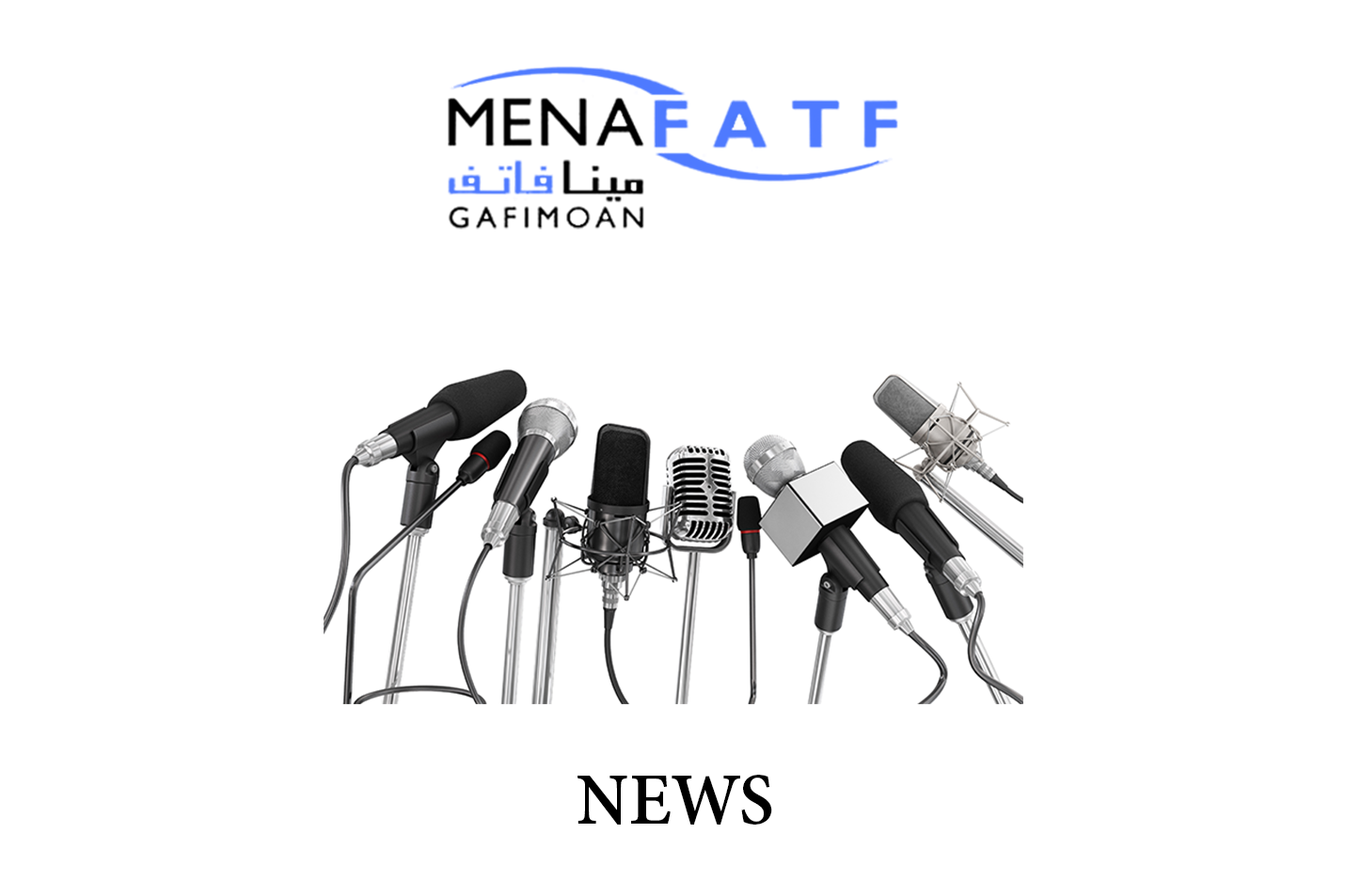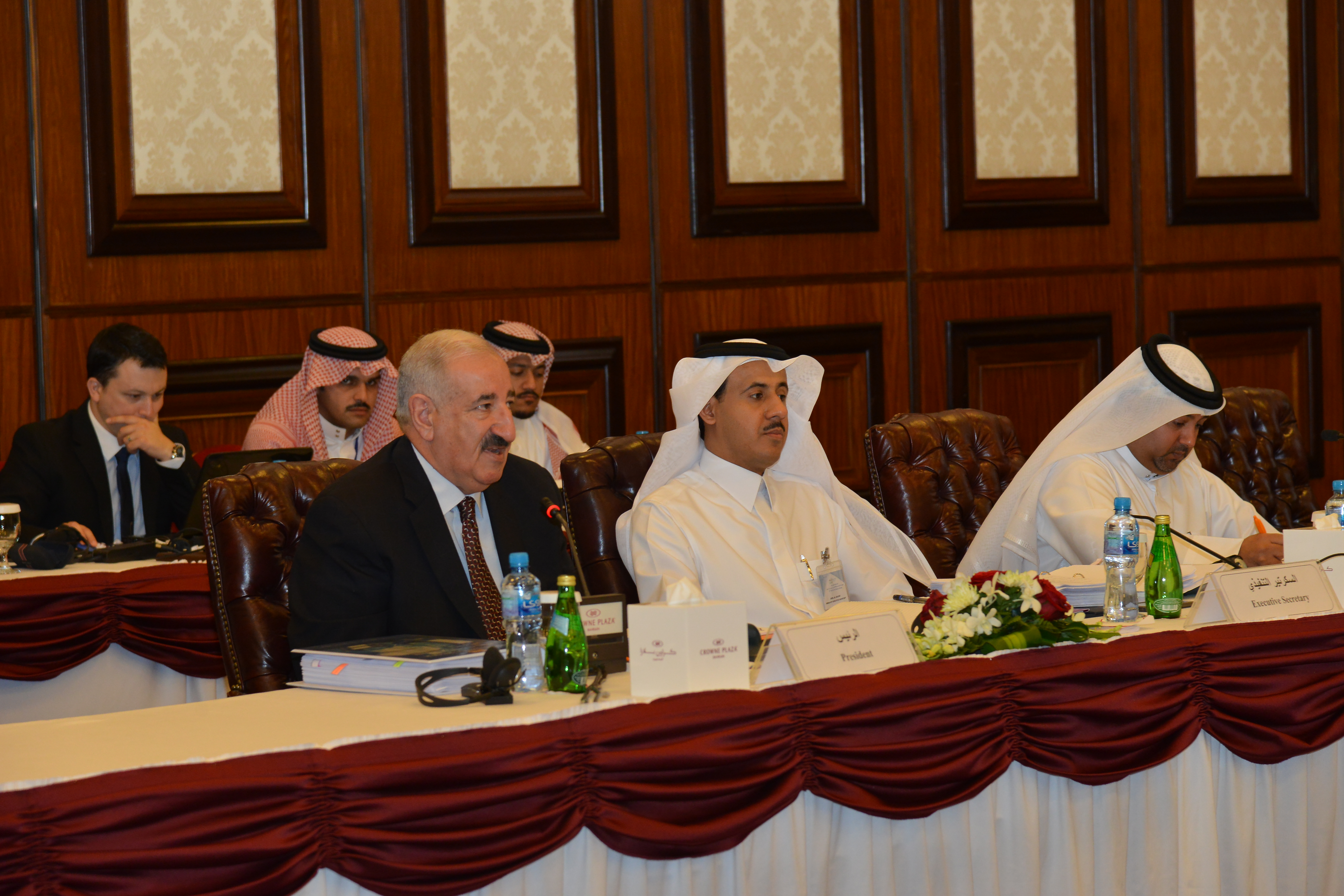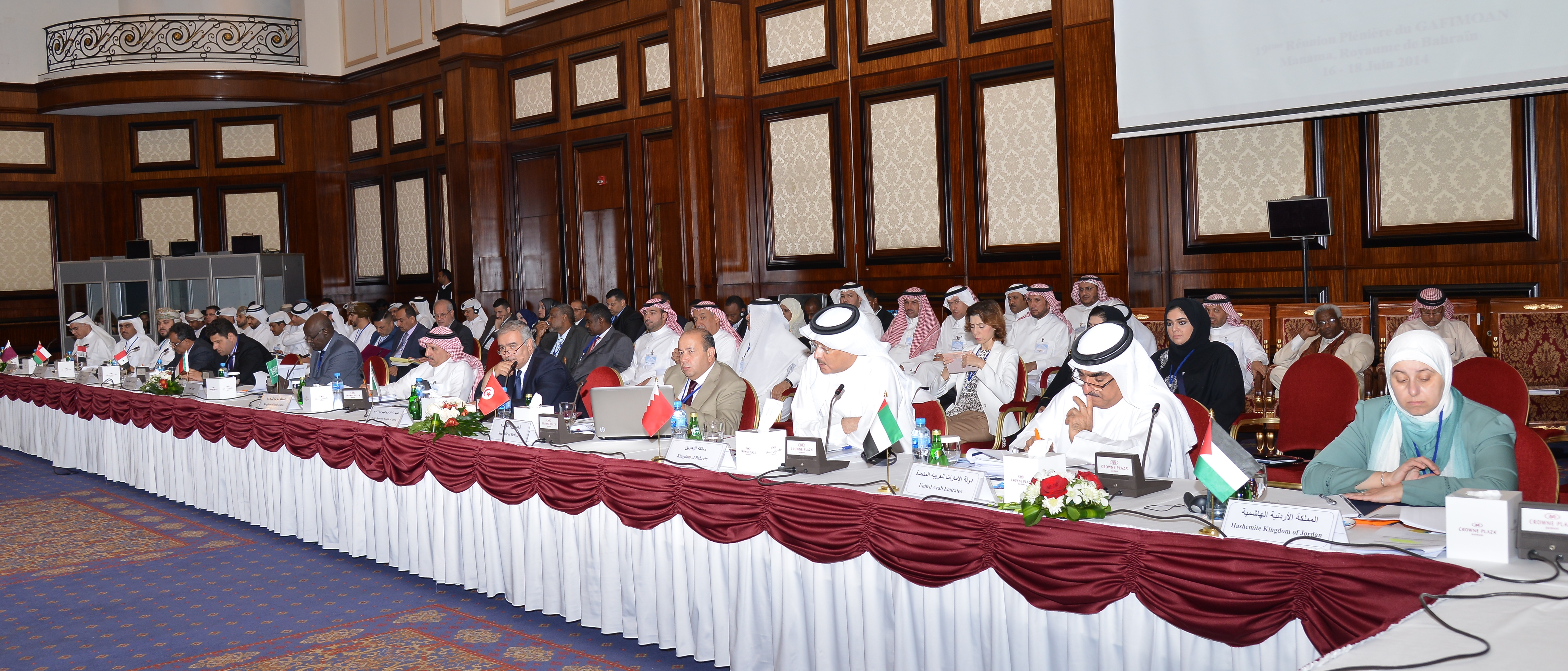The 19th plenary meeting was held in Manama, Bahrain from 16 to 18 June 2014. The meeting was chaired by the Republic of Iraq, represented by H.E Dr. Abdul Basit Turki Saeed, Governor Agency of the Central Bank of Iraq and President of the Federal Board of Supreme Audit.
A large number of AML/CFT experts participated in the Plenary meeting, representing MENAFATF member countries (Jordan, UAE, Bahrain, Tunisia, Algeria, Saudi Arabia, Sudan, Syria, Iraq, Oman, Qatar, Kuwait, Lebanon, Libya, Egypt, Morocco, Mauritania and Yemen), in addition to observer countries and organizations (Palestine, Republic of France, the United Kingdom, the United States of America, World Bank, International Monetary Fund, the Cooperation Council for the Arab States of the Gulf, Financial Action Task Force, Arab Monetary Fund and the United Nations).
A set of important topics related to a series of issues on MENAFATF work and activities were discussed during the sessions of the plenary meeting. Below are the most important decisions issued by the meeting.
- 9th Annual Report, Closing Account and External Auditor Report of year 2013
The Plenary meeting adopted the 9th Annual Report for the year 2013, which covers the activities and achievements made throughout the year. The Plenary also ratified Closing Account and External Auditor Report for the year ended on 31 December 2013.
- Reinforcing Financial Inclusion and AML/CFT requirements:
The Plenary meeting discussed the topic on reinforcing financial inclusion (Reinforcing financial inclusion is providing financial services for most segments of the society including low- income segments) and its relation with AML/CFT requirements through presentations made by the World Bank and the Financial Action Task Force. The presentations tackled the concept of financial inclusion and its relation with ML/TF risks, and how to apply the combating requirements in countries that adopt the policies of reinforcing financial inclusion.
- First Update report for the State of Qatar
The plenary meeting followed through the first update report of Qatar on the recent developments and measures taken by Qatar to improve its AML/CFT regime.
- Kingdom of Saudi Arabia, the Republic of Tunisia and the Republic of Yemen move from regular follow up process to the biennial update:
The plenary noted the significant progress made by the Kingdom of Saudi Arabia, the Republic of Tunisia and the Republic of Yemen and praised the achievements made to enhance their AML/CFT regime based on the plan established in their mutual evaluation reports. The plenary meeting adopted their follow up reports and approved to be moved from regular follow up to biennial update; the reports will be published on MENAFATF website.
- Follow up reports:
Within the framework of the follow up for the mutual evaluation processes, the 19th plenary meeting adopted 9 follow-up reports for the following countries: United Arab Emirates, People’s Democratic Republic of Algeria, Republic of Sudan, Arab Republic of Syria, Sultanate of Oman, State of Kuwait, Lebanese Republic, Arab Republic of Egypt and the Islamic Republic of Mauritania. The reports revealed the progress made by those countries in developing their AML/CFT regimes in light of the recommended action plan established for that purpose in their adopted mutual evaluation reports.
- Working Groups:
The Plenary adopted the Mutual Evaluation Working Group (MEWG) and the Technical Assistance and Typologies Working Group (TATWG) Chairs reports, which included the recommendations both Working Groups have reached in their meetings held on Sunday15 June 2014 on the margin of the 19th plenary meeting.
- 9th MENAFATF Financial Intelligence Units Forum:
The 9th FIUs forum was held on Saturday 14 June 2014 on the margin of the 19th plenary meeting; the most important issues are summarized below:
- Encourage and follow-up the applications of FIUs to join the Egmont Group.
- Exchange of expertise through presentations on Best Practices made by some FIUs on “FIU readiness for the 2nd round of evaluations in light of the revised recommendations and the new assessment methodology”.
- Mechanisms of building and promoting FIU’s capacities.
- FIU relation with other Working Groups within the MENAFATF.



